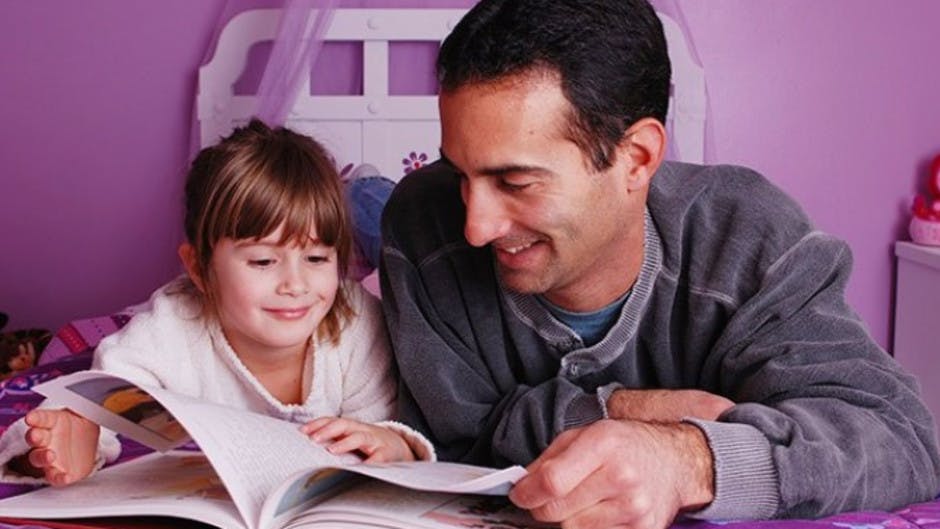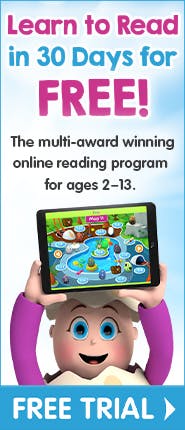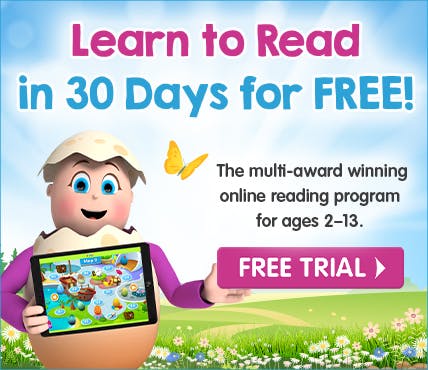


Critical Thinking Ideas for Children

Reading is a great way to help children build their critical thinking skills. Access over 4,000 children's books with comprehension quizzes online with Reading Eggs. Free Trial
When you're reading a book together with your child, one of the most important things to do is to help them build their understanding of the story.
The words and pictures in a book can only tell us so much. Good readers search for deeper meaning and find ways to connect stories to their own experiences and the world they live in.
A way of looking for these connections is to use critical thinking skills.
Critical thinking is the ability to draw on existing knowledge and experiences, as well as existing problem‑solving skills, to develop a deeper understanding of a story.
During reading time, there are a few things you can do to foster your child's critical thinking skills not only to help them understand the story at hand, but to prepare them for a lifetime of literacy success.
Critical thinking ideas for children
1. Choose books with familiar experiences
For example, if your child is starting a new school, choose a book about making new friends. This will let your child draw on their personal experiences and feelings to make sense of the book.
2. Add a little conversation to every book
Pause several times during the book to talk about important character developments or events in the book. Take a few minutes after reading to continue the conversation and reflect back on earlier comments.
3. Think aloud to solve problems in the book
Let your child hear your thought processes and encourage them to express their own thoughts and opinions. To encourage your child to solve a problem in a story, say something like, "I wonder what the princess could do to break the witch's spell?"
4. Predict what will happen later
A good reader uses their knowledge and experiences to predict what might happen in the story. During reading time, ask your child to predict what might happen next. Or when you finish reading the story, ask your child what could happen in the future.
5. Ask open‑ended questions
Avoid questions that allow for 'yes' or 'no' answers. Instead, opt for questions that begin with one of these six words: who, what, where, when, why or how.
Unlock 4,000+ children's books and quizzes!
Reading Eggs includes over 4,000 children's books to practise critical thinking skills. They can be accessed on a desktop, iOS, or Android device. Each book includes a short comprehension quiz, which assesses your child's understanding of the story, as well as exciting rewards to collect!
6. Let your child make their own decisions
Instead of giving your child answers or telling them they're wrong, allow your child to draw their own conclusions about a story and build confidence in their thinking skills.
7. Encourage thinking outside the box
When you have finished a book, ask your child to think of alternative endings or solutions to problems. For example, "What else could the pigs have done to get rid of the big bad wolf?"
8. Relate real-life experiences back to stories you've read
Observe situations and problems you encounter in real life and find opportunities to relate them back to the stories you've read with your child.
9. Read aloud as a family
Reading together with more than two people invites several different opinions and perspectives. When reading aloud with your child, pause at important parts of the story and let each person share their own thoughts.
10. Role‑play stories through imaginative play
After you've read a story, gather a few props and act out the story with your child. This gives them a fun way to think about how one event leads to another, and why characters act and react the way they do.
By fostering your child's critical thinking skills, you're laying the foundation for them to make clear judgements, solve problems and think creatively not only while reading and writing, but in all other aspects of their life.
Unlock 4,000+ children's books and quizzes!
Reading Eggs includes over 4,000 children's books to practise critical thinking skills. They can be accessed on a desktop, iOS, or Android device. Each book includes a short comprehension quiz, which assesses your child's understanding of the story, as well as exciting rewards to collect!






